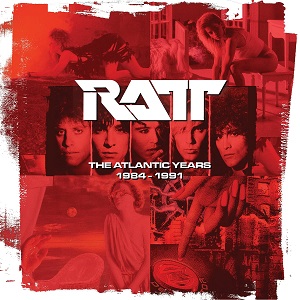What Caused Hair Metal to Decline? Stephen Pearcy Gives His Take

Ratt, “The Atlantic Years Box Set” – Story by Cat Badra, album art via BMG Rights Management US LLC
Stephen Pearcy of Ratt discusses what he thinks led to the demise of hair metal
It’s a common discussion among fans of heavy metal and grunge rock. Did grunge kill the hair metal star? Sure, it seems like the second Nirvana released their grunge hit “Smells Like Teen Spirit,” hair metal fell. But, some people don’t think the two are as related as one would think. Do, what caused hair metal to decline? Stephen Pearcy of Ratt has some ideas.
In a new interview with Goldmine magazine, Pearcy talks about Ratt’s upcoming limited edition “The Atlantic Years” box set. However, during the chat, the conversation switched to what caused Ratt to decline 1992. That fall in popularity followed the release of their fifth studio album, “Detonator.”
For “Detonator,” Ratt joined forces with producer and co-writer Desmond Child. The album was even more commercial than Ratt’s previous releases. At the time, Pearcy explains that record labels were pushing bands to go in as strong a hair metal direction as possible. When it comes to what caused hair metal to decline, he think the labels’ push for tons of hair metal bands in the Los Angeles rock scene was partly to blame.
“A lot of people think grunge had a huge impact on us, but at that point, it really had nothing to do with what happened to Ratt,” he told the magazine. “I mean… we can claim partial ownership for the music that came out of the early ’80s, but by the time the decade ended, and Detonator came out, the scene was totally flooded with cookie-cutter bands.”
“That was as big of an issue as anything,” he added. “It got to the point where people were like, ‘You have to dress this way, move this way, sing this way,’ and all this f***ing s***.”
He also said that at that time, all the bands were trying to be “mini-Motleys and mini-Ratts.” So, “it just got to be too much.”
“And so, things went from being amazing to being the absolute worst very quickly,” he said. “When everyone is making the same music, using the same producers, and the same video directors, you’re going to have a problem. So, I don’t blame it on grunge as much as I blame it on all that was going on in that era.”
One of metal’s big names who was active in the 1990s, Dora Pesch, spoke with Audio Ink Radio about the period when grunge took over in the ’90s. She said that when grunge hit big, the record labels acted like they did about hair metal. In other words, they urged bands to only sound grunge. “I recorded, I think, at least five or six records and I put all my heart and soul into them. Then, I showed the record company… They said it had to be grunge. I said, ‘No, it’s not grunge at all.’ And then they didn’t even want to listen to it. They said, ‘We can’t do the marketing. You have to be grunge,’ and I said, ‘I don’t feel it. I’m metalhead.'”
- Pink Floyd Deep Cuts That Should Have Been Bigger - September 16, 2025
- Foo Fighters’ Dave Grohl Makes Big Announcement at Surprise Gig - September 14, 2025
- NFL Announces Unlikely Metal Vocalist to Sing National Anthem - September 11, 2025






